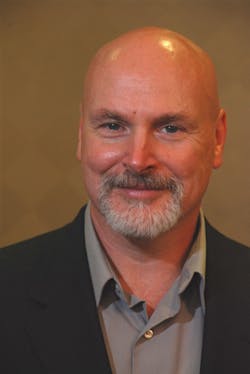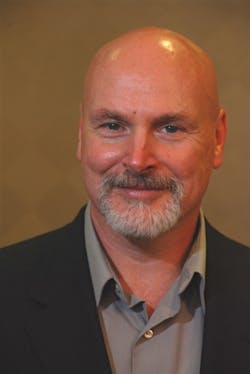Team EHR: A team approach to electronic dental records
Powered by DentalSoftwareAdvisor.com
Editor's Note: We are introducing a 12-part series on electronic dental records with expert Mike Uretz, editor-in-chief of DentalSoftwareAdvisor.com and executive director of The EHR Group, based in Seattle. The first article in the series gives an overview of the whole team's approach to implementing an EHR system in the dental office, while future installments will focus on particular roles in the dental office and how each job function will be affected by the EHR system. Stay tuned for more on how it relates to the dentist, hygienist, dental assistant, and office manager. We sat down with Mike to discuss this column and the key points. See what he has to say before diving in below!
I've been involved with many successful electronic health record implementations over the years, and one of the common denominators that contributes to that success is the application of a team approach in all aspects: discussion of EHR system benefits, system evaluation and selection, and implementation and training.
The interesting thing about the human race is that we all have our unique thoughts, wants, and needs. It would be folly for any one person to think that they can make EHR-based decisions for everyone else, since everyone on the team will use the system.
Electronic health records: Where we've been and where we're going
The Value of Team Buy-In
Let's start at the beginning with the concept of team buy-in regarding the implementation and use of electronic health records. There are always those individuals within the practice that just don't want to change, that believe the technology they have is just fine, and trust the cliché "If it ain't broke, don't fix it.”
Even if you've made the decision to go to electronic health records on your own, it's still important to discuss this among the folks that manage different functions of your practice so they at least have an opportunity to provide input into the decision and feel that they are a part of the decision process.
Now, that isn't to say that if someone objects to this decision that you still won't go ahead and adopt the technology. But, by bringing in the team at this early stage it at least gives them some ownership. I have actually had team members in the practice approach me at some of my seminars and workshops to tell me that initially they were resistant to implementing EHR technology, but after a few meetings with people in the know, they understood how this would actually help their jobs.
And, making everyone a stakeholder in the EHR implementation project can help avoid the "I told you so" syndrome that can inevitably come up when implementations don't go perfectly.
Making the switch to electronic dental records
Team-Based EHR Selection
Everyone on the team will use the EHR in a different way to support their specific job functions. Nothing is worse than choosing an EHR system based on features that another member of the staff will use. Here's an example: A couple of years ago, I was hired by a health center to assist in selection of EHR technology. When we had a kickoff meeting for vendor selection, I asked management why the dentists weren't at the table to discuss their particular needs. I was told that the medical staff will choose the EHR system and the dental staff would just have to adapt the system to fit to their needs.
A similar scenario exists in a dental practice when, for example, a system is selected based on a dentist’s needs and then expects the hygienist, who didn't have input into the selection of the system, to just adapt to the dental hygiene features that the dentist thought were important.
Or, even though the billing person is responsible for claims processing and cash flow, is it right that they don't have a say in how the procedure codes will electronically flow from the operatory to the claims processing system?
The point is that since everyone will be using the system, then everyone needs to feel and touch it before purchase. When I work with a practice, the very first thing I do is to try to discern from each individual job function what the important features are they are looking for in an EHR system, and we use as much of that criteria as possible to evaluate and select various vendors.
This can be as simple as determining which patient data fields are important for each job function. The office manager may require different information than the hygienists, but they are equally important for the practice as a whole.
Team Implementation
I can't tell you how many times everyone goes off in their own silos and never the twain shall meet when it comes time to implementation.
Whether it's for the dentist, hygienist, dental assistant or front office, of course the vendor will work directly with each particular faction. However, during the implementation, it is important for that all groups and departments meet on a regular basis and discuss progress towards completion, especially if the issues coming up are with the software vendor. When you get together as a group, you might just find that there are some commonalities with various issues that need to be addressed and an economy of effort in resolving them.
Summary:
A properly implemented EHR system should make a dental practice more efficient and promote collaboration between team members. But for this to happen, collaboration must occur during the evaluation of the software vendor and the actual implementation itself. Having a dental practice united in EHR success can ensure a more efficient work environment and optimal patient care as well.

